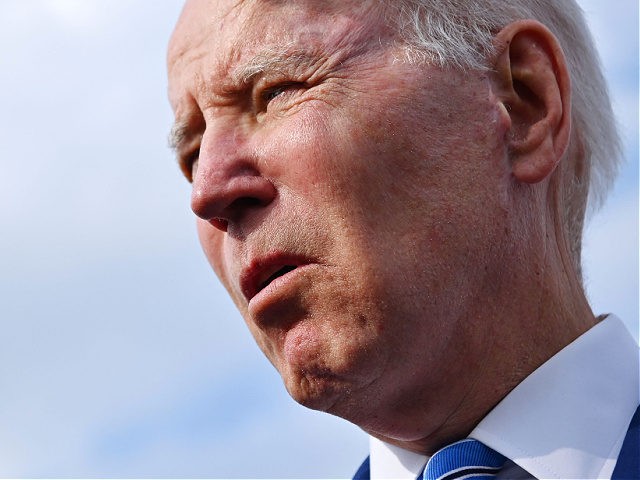Consumer sentiment cratered in early June to the lowest on record as inflation accelerated to the worst level in 41-years.
The University of Michigan’s index of consumer sentiment plunged to a record low of 50.2, down from a May reading of 58.4. Economists polled expected the gauge to hold steady after declining sharply a month earlier.
The 14 percent decline is comparable to the trough hit in the 1980 recession, according to the survey’s director, Joanne Hsu.
Both the reading of current conditions and expectations for the future fell sharply. The current conditions index fell to 55.4 from 63.3 at the end of May. The expectations gauge crashed to 46.8 from 55.5.
The two previous lows were in 1980, when the index fell to 52.7, and 2008, when it was 55.3. (Note the chart does not include the final May or June preliminary figures because the St. Louis Fed data does not include preliminary readings and is one month behind on final readings).

Americans’ expectations for inflation over the next year jumped to 5.4 percent in June from 3.3 percent in the first weeks of June. The expectation for inflation’s average over the next five years, a figure closely watched by Fed officials to check on whether inflation expectations remain anchored, jumped to 3.3 percent from three percent.

The gauge of durable goods buying conditions fell to a fresh record low.
“All components of the sentiment index fell this month, with the steepest decline in the year-ahead outlook in business conditions, down 24% from May. Consumers’ assessments of their personal financial situation worsened about 20%. Forty-six percent of consumers attributed their negative views to inflation, up from 38% in May; this share has only been exceeded once since 1981, during the Great Recession,” Hsu said.>Gas prices, which have hit record highs day after day in June, are taking a heavy toll on consumer sentiment.
Gas prices are taking a heavy toll on consumer sentiment.
“Overall, gas prices weighed heavily on consumers, which was no surprise given the 65 cent increase in national gas prices from last month (AAA). Half of all consumers spontaneously mentioned gas during their interviews, compared with 30 percent in May and only 13% a year ago. Consumers expect gas prices to continue to rise a median of 25 cents over the next year, more than double the May reading and the second highest since 2015,” Hsu said.
Consumers have spontaneously mentioned shortages for nine consecutive months.

COMMENTS
Please let us know if you're having issues with commenting.